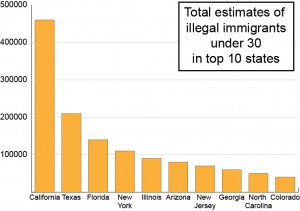Teaching and Learning and Caring Blog
EL PASO – On June 15, 2012, more than a year after President Obama’s visit to El Paso, he announced that his administration would no longer take administrative action against young people who were brought here as children and who have no criminal record. These are the same people (an estimated 800,000) that would qualify for the Dream Act, if it ever passed. Moreover, these kids would be allowed to apply for work permits. Finally, it is a step in the right direction. But, and it is a rather large one, there has to be enough trust that the administrative action would not be overturned, and people would not be deported once they had come forward and self-identified. The following blog by Cheryl Howard originally appeared in Bean Juice Dispatches, an on-line publication created by former UTEP students, Raymundo Aguirre and John Del Rosario. EL PASO, May 13, 2011 – Anchors keep us centered in bad weather, keep us from drifting away with the current or the wind. Dreams are not anchors; they are the wisps of wind or the current itself. Dreams are unfettered by reality.



